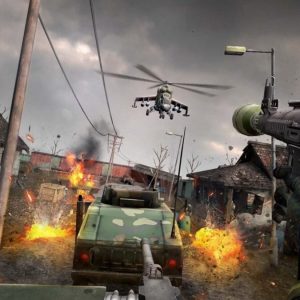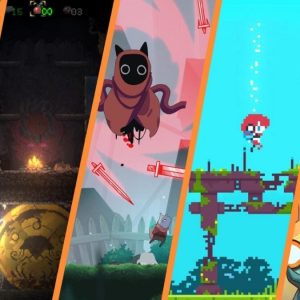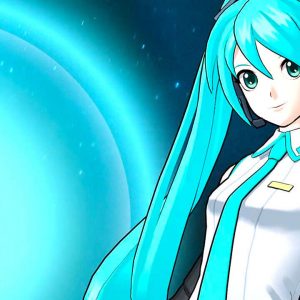Another busy court day in the books, with the FTC v. Microsoft trial set to conclude tomorrow. It was a surprisingly quiet day compared to some of the previous ones, with Microsoft head Satya Nadella giving relatively mild testimony, Activision CEO Bobby Kotick calmly parrying his FTC inquisitors, and a lot more economist talk.
We also got to see, briefly, Nadella and Judge Jacqueline Scott Corley bond over a mutual love for Candy Crush. Delightful.
Exclusivity For Me, But Not For Thee
Console exclusivity has been a part of how video game releases work effectively since video games came into existence. But to hear Xbox and friends tell it over the last few days, everyone in the industry just hates the idea.
Figures like Microsoft head Satya Nadella and Activision CEO Bobby Kotick today made exclusivity seem less like a feature and more like a bug, ruining their ability to do business on certain platforms and reach larger markets of people. Nadella, for instance, mentioned that he had “no love” for exclusives, while Kotick emphasized that taking Call of Duty exclusive to Xbox would be “very detrimental” to business.
All of this is in line with Spencer’s comments. Collectively, Xbox and its witnesses and lawyers appear to be making the argument that the entire idea of exclusivity is a loathesome one they play along with because Sony forced their hands. If Sony would just stop paying for exclusives like Final Fantasy XVI, they argue Xbox wouldn’t have to do deals like it has with Activision just to compete.
“
It’s not shocking, either, that Sony Interactive Entertainment head Jim Ryan sang a distinctively different tune yesterday in his video deposition. He noted that while he “didn’t like” Redfall and Starfield going exclusive to Xbox post-Zenimax acquisition, he “had no quarrel with it” and didn’t view it as anti-competitive. Ryan is unable to climb up on a high horse about exclusives when Xbox has already shared data in the courtroom that PlayStation’s own exclusives far outnumber Xbox’s. Where he draws the line is, of course, at Call of Duty: a franchise so massive and successful that (the FTC and Sony argue) the very idea of it becoming exclusive would supposedly cause irreperable harm to PlayStation.
Right now, it’s admittedly rather difficult to imagine a scenario where Xbox taking Call of Duty exclusive doesn’t massively backfire on Xbox. A loss of Sony’s much larger market share would significantly cut into existing Call of Duty profits, and (as multiple executives have reminded us) the “passion” this hypothetical would ignite in the gamer audience could result in meaningful harm to the brand. But one thing that’s key to keep in mind is that Ryan isn’t thinking about a situation where Xbox takes Call of Duty exclusive next week, month, or year, under very similar market conditions. Rather, Ryan seems to be afraid of the tables truly turning, of being Call of Duty-less in a hypothetical far off future where PlayStation is, for whatever reason, already at the bottom, just as Xbox is now.
Securely at the top of the world, PlayStation would indeed get along fine enough without Call of Duty. But Ryan knows that this situation may not last forever. The “console wars,” manufactured online as they may be, really do come out with sales winners and losers. While PlayStation may be confident in its plans for five, or even ten years down the line, at some point, Ryan is worried that Spencer’s Call of Duty promise is going to expire. And when that happens, if Sony isn’t still on top of the console world, the loss of Call of Duty could be devastating.
It makes sense to be vehemently anti-exclusivity when exclusivity is the tool of the winners, and you’re losing. But markets are unpredictable. There’s no way to guarantee where either competitor will be in ten years. Ryan seems to believe that if he’s not on top when those deals expire, Xbox will do to Sony exactly what Sony has been doing to Xbox for years…or much, much worse. Whether or not he’s right in that belief is up to the court to decide.
Who, Exactly, Hates Game Pass?
During his video deposition, Jim Ryan tried to claim that he talked to “all the publishers” and that, unanimously, they all hate Game Pass. Was he right? It’s hard to say.
A Eurogamer report in 2019 surveyed developers on their Game Pass thoughts, and came out far more mixed than Ryan is characterizing – but that was four years ago, and those surveyed were largely mid-sized developers, not major publishers. No More Robots’ Mike Rose has some more recent thoughts on the service that skew far more positive, but he’s just one example. To hear Xbox tell it, the service is great for developers, though it’s also admitted it cannibalizes full game sales. Put all together, the public evidence of companies talking about Game Pass feelings seems fairly all over the place. So what was Ryan talking about?
One guess can be made thanks to today’s testimony from Bobby Kotick, who like Ryan, seems to dislike Game Pass. When questioned, he admitted that he’s not a fan of multi-game subscription services, hence why Activision games have (largely, though not entirely) failed to appear on them. He emphasizes that while there’s no explicit internal mandate that Activision games won’t show up on subscription services, he doesn’t think there’s a strong enough business proposition out there that would convince him to partake in one if Activision remained independent.
“
If the acquisition happens, he acknowledges he’ll be stuck with Game Pass whether he likes it or not. “I don’t agree with the idea of a multi-game subscription service as a business proposition going forwards, but we [Activision and Microsoft] can agree to disagree,” he said.
Kotick disliking multi-game subscription services on principle makes a lot of sense. He doesn’t stand to benefit from them. Why on earth would he put Call of Duty on Game Pass when Activision is currently getting $70 a copy from millions of units sold? What sense does subscription make for Diablo 4 if people are already paying for it? If Activision’s games were less popular, or had a shorter sales tail, it would make some business sense to at eventually put them on a subscription service and make some guaranteed money. But Activision Blizzard games have reached a level of popularity where that’s no longer necessary. It’s the same reason why GTA 5 has only barely and briefly been available on Game Pass in the decade since its release: it doesn’t need it. A subscription deal would only hurt sales.
Which brings me back to Jim Ryan. Game Pass is very likely an excellent deal for developers who need the monetary guarantee Game Pass offers, because their own sales prospects are uncertain enough. But I suspect Jim Ryan wasn’t talking to Mike Rose or Tequila Works or the other developers Eurogamer spoke with. I suspect Jim Ryan is referring to the massive publishers who don’t need Game Pass, either because they have their own services to put games on (EA or Ubisoft) or because they are Take-Two, Activision Blizzard, or even Nintendo: so massive that a set guaranteed return in exchange for all their unit sales would be utter foolery.
Leaks in the Boat
One last quick aside from today before we go. Probably the most fun revelation today actually didn’t happen in court. It happened because some lawyer or assistant or someone didn’t look closely enough at a sharpie they were using to redact some very, very confidential documents.
Trials like this one are a heyday for games media, not just because of what’s revealed in normal proceedings, but because wildly secretive games companies spectacularly keep flubbing things like this, resulting in veritable piles of secrets getting dumped into evidence folders. Aside from the sharpie disaster above, last week we got a look at an entire presentation with secret details of companies Xbox was thinking it wanted to buy, that has since been pulled out of the folder and replaced with another version that has far, far more giant black redaction boxes plastered all over it. I expect we’ll see more of the same tonight and tomorrow, as the entire evidence folder has been pulled offline after the sharpie incident.
All of this is pretty funny, but it has a much more important impact. Judge Jacqueline Scott Corley has been a good sport about it all, but both here and in Epic v. Apple, the US justice system has made it clear that while it will allow protection of legitimate company secrets, it’s not here to do PR work for video game companies. Inevitably, games companies fighting in court about anything on this large a scale will result in a strange, backhanded, corporate transparency win for consumers. The more they fight, the more we know.
There’s one more day left in court, with a verdict to be rendered in the days following. You can check out our daily roundups right here on IGN for updates on everything happening in FTC v. Microsoft, day by day, as well as catch up on our detailed analysis of day one, day two, and day three of the trial before it reconvenes tomorrow.
Rebekah Valentine is a senior reporter for IGN. You can find her on Twitter @duckvalentine.
























